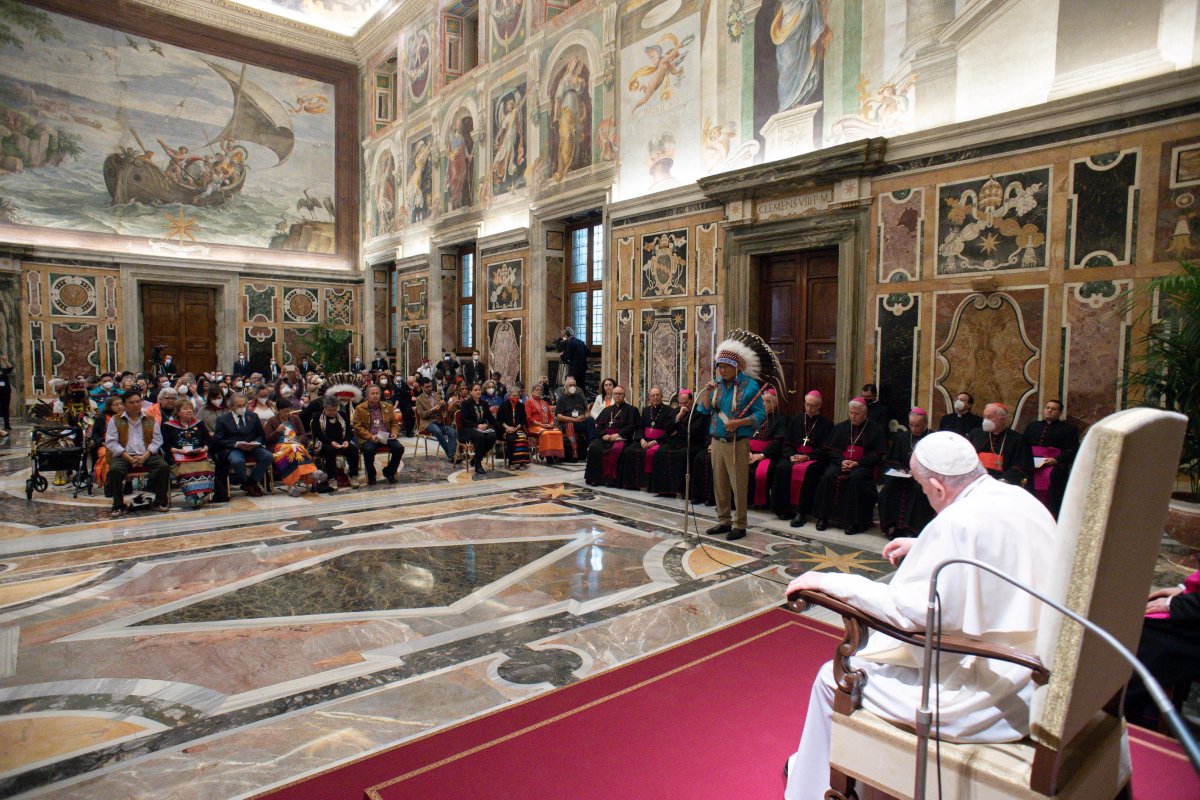They are the words that so many have waited for, for so long.

“I want to say to you with all my heart, I’m very sorry.”
Those were the words of Pope Francis as he formally apologized Friday, for the grave and lasting harm caused by the conduct of some staff at residential schools in this country.
The Pope spoke during an audience with an Indigenous delegation from Canada.
“I join my brothers, the Canadian bishops, in asking your pardon,” he said to the group.
The long sought apology caps a week of visits to Rome by the delegation of First nations, Inuit and Metis from Canada to speak to the Pontiff about what happened at the schools.
It is estimated between 4,000 and 6,000 children at the institutions died from abuse. Many were sexually abused.
Some Indigenous people in the Montreal area, like Ratsénhaienhs Ross Montour, a Council Chief in Kahnawake south of the city, believe the apology was long overdue and that some in the Mohawk community might find solace in it.

Get daily National news
“If the apology is sincere and if it gives them comfort,” he said, “then I’m not the one to say you know, you’re not to be comforted.”
However, he says it’s only a first step and the fact that the Pope apologized for the actions of some priests and nuns and not the church itself, he believes is a failure.
“Even if you say these were people of their time, they were full participants, the church was a full participant in what was done through the Indian Act, their role in the Indian residential school system,” he argued.
Though others agree that the apology is just the beginning, they note that it’s significant since it was issued to First Nations, Inuit and Metis.
“That’s a key and historic moment because all of the other apologies were specifically for First Nations,” explained Chadwick Cowie, a McGill University Political Science Lecturer who is from Michi Saagiig Nishnaabeg Community of Pamitaashkodeyong.
Cowie believes the apology is noteworthy for another reason.
“You can’t move forward and you can’t move forward with a partner on a path of reconciliation if there is no acknowledgment of that past,” he pointed out.
Pope Francis has said he will visit Canada to speak to Indigenous communities. Cowie and Montour are waiting to see what what the Pontiff does when he comes here and what concrete actions the church takes.






Comments